Our website contains links to partner sites. If you click from our site to the partner's site and purchase their services there, we will receive a commission for mediation (Find out more information). This form of cooperation does not affect the objectivity of our reviews. With each purchase made through links from our site, you support our editorial office so that we can create quality and useful content in the future. Thank you.
Important notice All our articles are written by real people. They are not artificial texts from a machine.
Divi underwent a massive performance update. What does it mean?
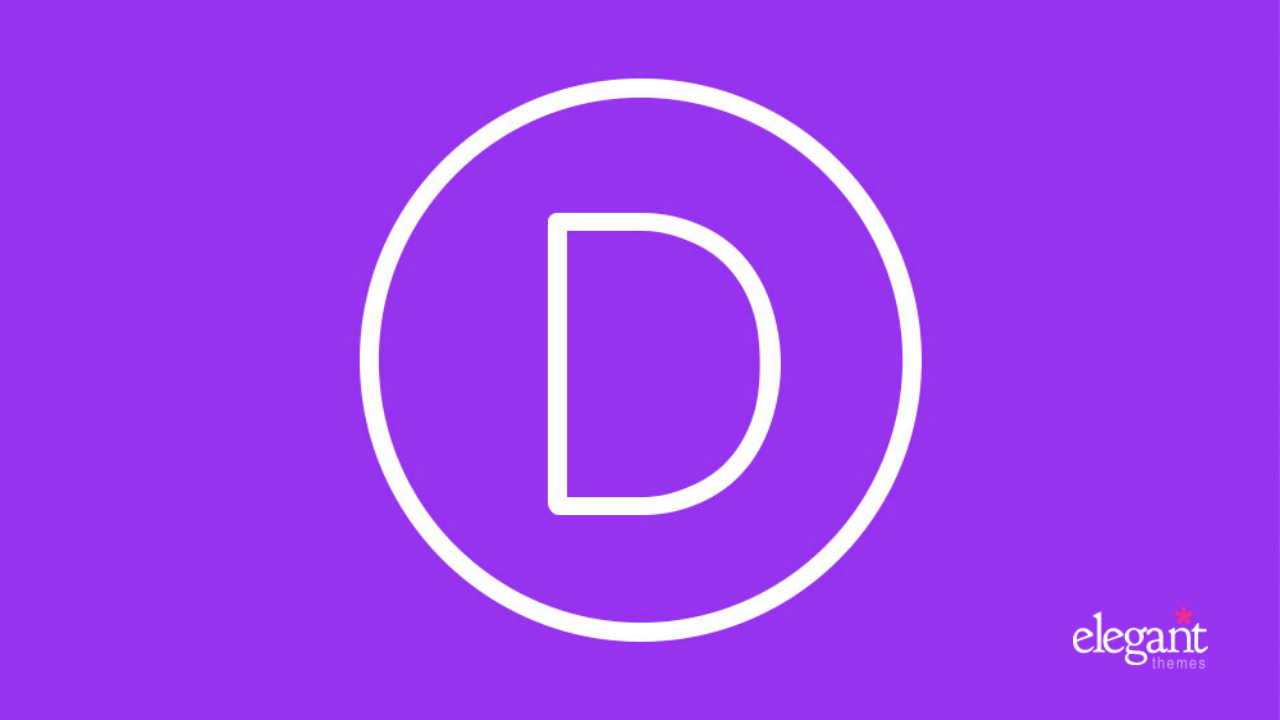
The Divi template underwent a massive performance update in August 2021, which should have a positive effect on the loading time of the website, due to which this template was often criticized. It has been said that Divi development has fallen asleep and its use no longer makes sense. That should change with the update. Is Divi really faster?
It is the biggest update since the beginning of the Divi project
People have been complaining about Divi’s performance for a few years already. Many problems were in fact related to bad website settings, the use of many unnecessary effects and large (non-optimized) images. When creating a website, people often get carried away by their imagination and start to install everything they come across.
However, even experienced web builders have had a number of problems with this template it was necessary to deal with interventions in the source code, where unnecessary JavaScripts had to be deleted. It was even worse when dealing with CSS, which swelled with every new module added to the page.
TIP: Are you interested in Divi? Read our Divi review.
Dark times were ahead of Divi, because its popularity was declining a lot due to its speed. Elementor and other site editors had far better speed results. Thanks to this, competing builders could be used by inexperienced users who had to turn on one of the caching plugins to “optimize” the speed of the site.
What changes with the update?
The massive update of Divi’s performance was announced on the Elegant Themes blog by Nick Roach himself (founder of Elegant Themes). And let’s face it, the developers and rock fans of this template and page builder have been waiting for such a message for an incredibly long time.
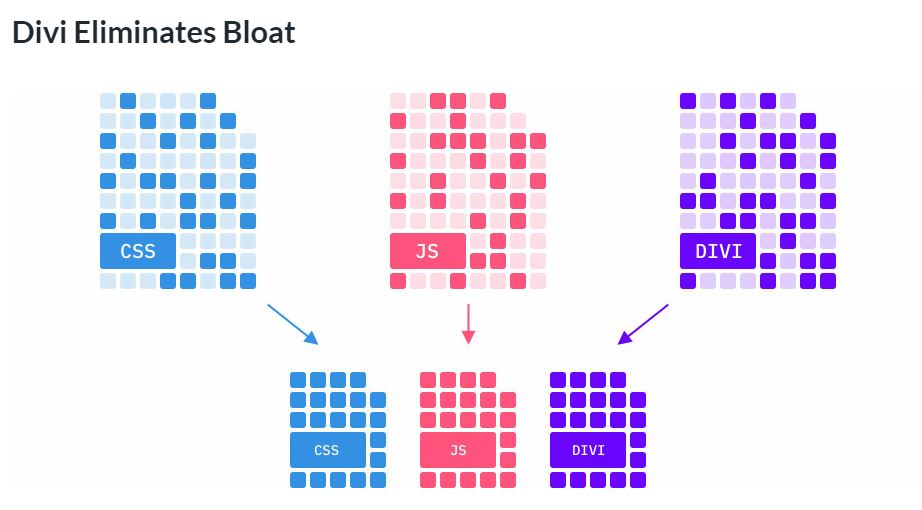
Dynamic CSS
This was a really big problem. Divi builder added additional CSS to the code because it could not recognize that a module with the same settings already existed on the page. If you used multiple identical modules on the page, for each of them additional CSS code was created . The more elements in the page, the more the CSS grew. As a result, the page took longer to load.
Now there has been a drastic change in the division of the large CSS file that Divi uses into hundreds of small components. Previously, CSS was loading including all the different styles of all modules. Even those that you have not used. That has changed, and Divi can only load the styles that are really needed on the page because of the modules used. The result is a robust reduction in the size of the CSS file on each page. In the laboratory results, the creators of Divi achieved a reduction in the size of CSS from 860 kB to only 54 kB.
Dynamic PHP framework
The new dynamic framework uses only the logic needed to render the modules and functions you use on each page. Everything else should be literally cut out of the equation and it should not be loaded unnecessarily. Now when you use 5 of the 50 modules on page, Divi processes only the functions needed for those 5 modules and skips the rest. In the past everything that was in Divi was loaded. As a result, the pages loaded slowly.
JavaScript optimization
JavaScript followed the same path of optimization. Divi reloads libraries on demand, depending on the modules used on the page. In addition, JavaScript went through an overall streamlining process, so that a large amount of unnecessary code was removed, resulting in a halving of the original version.
Speed test
Elegant Themes has made a proper marketing hype around this update. It’s one thing to take lab measurements to market, but it’s another to measure it all yourself.
For the test, I used a powerful WordPress hosting from the company Bluehost and one of the pre-prepared layouts of the Divi template, which is full of various visual effects. And those are holding back any website. I did not use any caching plugin on the web.
Performance measurement before the Divi update
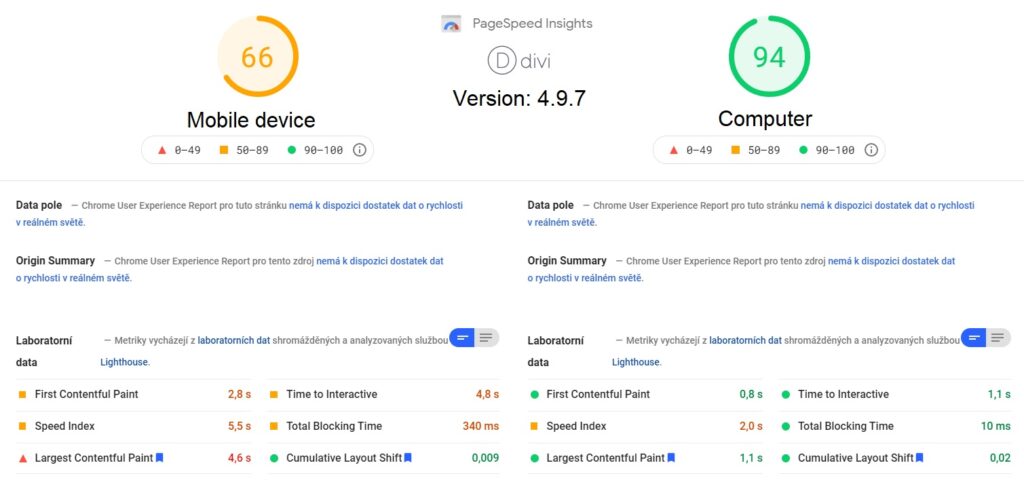
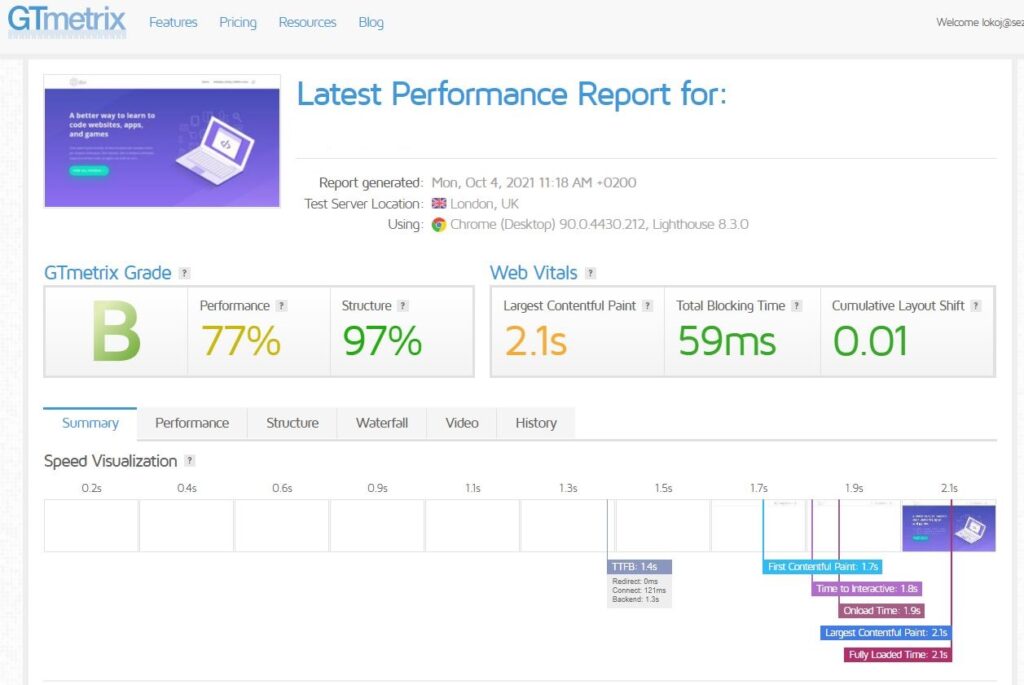
Performance measurement after the update
Already at first glance, you can see a big improvement in performance, but in GTmetrix (a tool for measuring web speed), for example, the change was not dramatic, so it would definitely like to deploy a cache plugin later. In my case it will be LiteSpeed Cache (must support your server).
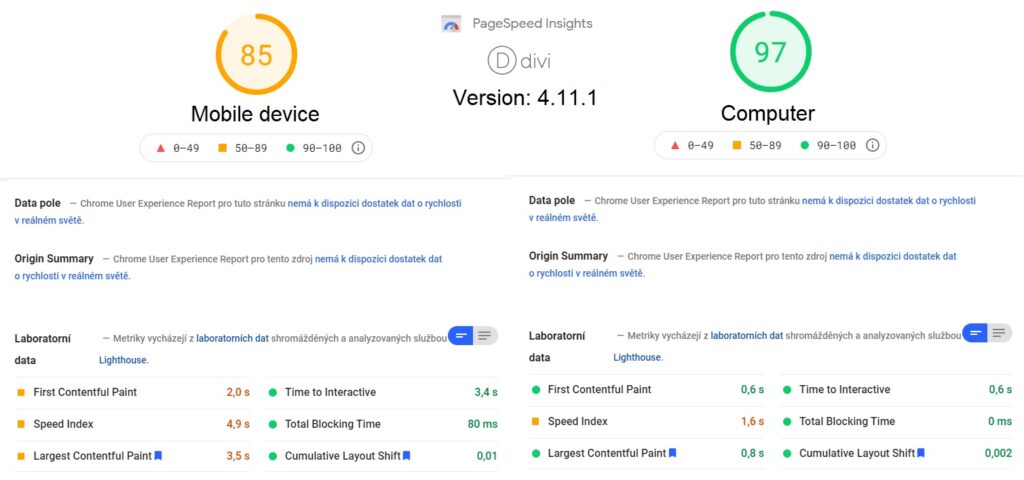
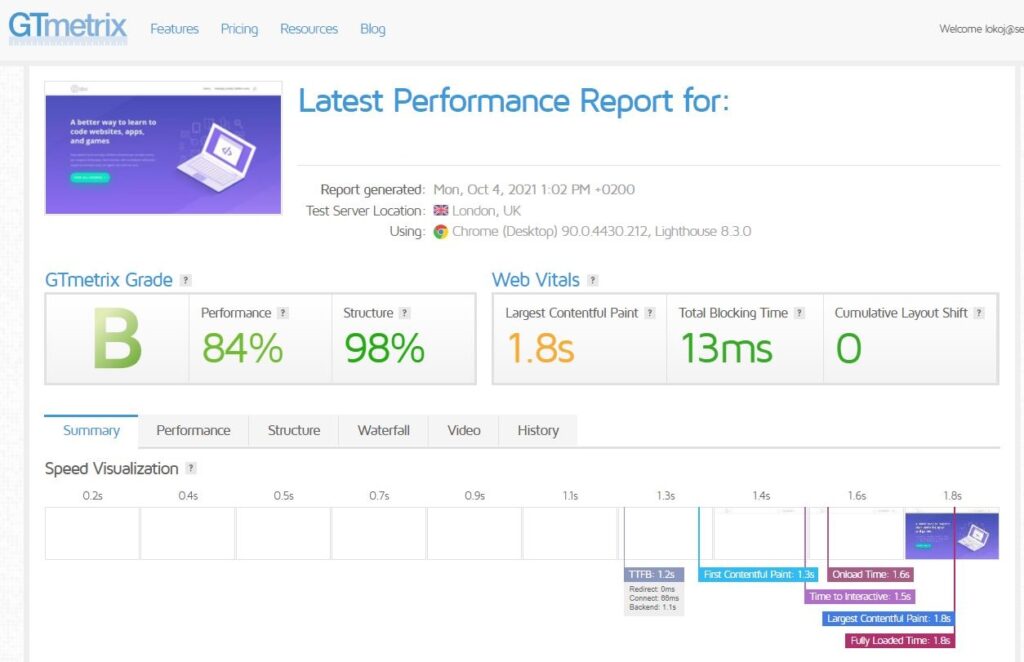
Divi Vs. Others
I didn’t do this test in person, but it was done by the developers of the Divi template. In fact, I’m surprised at how the Divi vs. Elementor ended. Elementor is currently one of the favorite page builders. It is quite possibly the most popular because it has its free version.
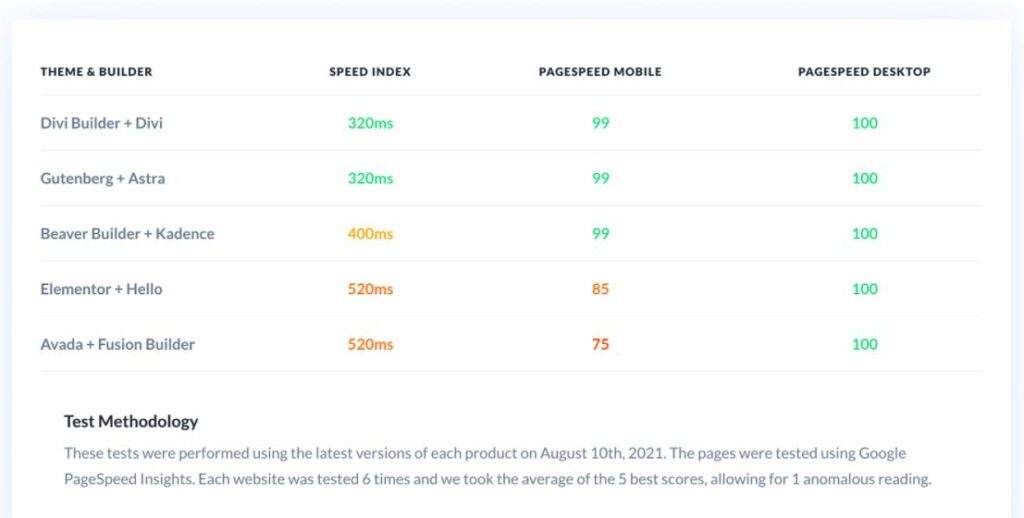
Conclusion and evaluation
Divi must have undergone a drastic change, which is only for good. Web loading speed is simply appreciated. If you haven’t updated yet, make a backup and hurray to update, because you’ll definitely love the new version of Divi. What we’re talking about is still a fairly good visual builder and also a way to create a website easily.









